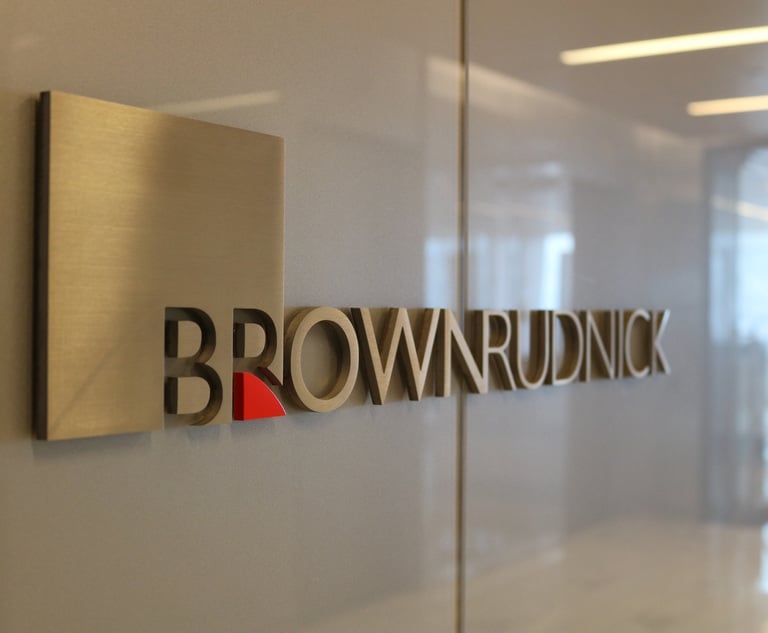
COVID-19 Blew Up the Bar Exam. Even Bigger Changes Are Coming.
The J.D. class of 2025 will most likely have to take the bar exam before they can practice, but that exam may bear little resemblance to the test law graduates take now.
April 01, 2021 at 09:00 AM
10 minute read
The original version of this story was published on National Law Journal
The first indication that COVID-19 would upend the bar exam status quo arrived March 22, 2020, in the form of a working paper penned by 11 legal academics and educational policy experts.
The paper argued that it would be unsafe—if not impossible—to administer the upcoming July bar exam in convention halls with hundreds of law graduates packed together. Instead, the academics urged bar exam authorities to rethink the exam and paths to attorney licensure and swiftly announce alternatives.
Their words proved prescient. One year into the COVID-19 pandemic, the bar exam looks wildly different in most of the country. Examinees log into the exam from their bedrooms, kitchens or wherever they can find some peace and quiet and a strong Internet connection. Facial recognition technology scans their pictures to ensure they are who they claim to be. And their computer cameras and microphones track and record them to ward off cheating.
This content has been archived. It is available through our partners, LexisNexis® and Bloomberg Law.
To view this content, please continue to their sites.
Not a Lexis Subscriber?
Subscribe Now
Not a Bloomberg Law Subscriber?
Subscribe Now
NOT FOR REPRINT
© 2024 ALM Global, LLC, All Rights Reserved. Request academic re-use from www.copyright.com. All other uses, submit a request to [email protected]. For more information visit Asset & Logo Licensing.
You Might Like
View All
Employers Scramble to Get Immigration Records in Order Ahead of Trump Crackdown
6 minute read
Fatal Shooting of CEO Sets Off Scramble to Reassess Executive Security
5 minute read
Brown Rudnick’s Brand and Reputation Group Unfazed After Loss of 6 Prominent Partners and Their Big-Name Clients

Lawyers Drowning in Cases Are Embracing AI Fastest—and Say It's Yielding Better Outcomes for Clients
Trending Stories
- 1Decision of the Day: Firm, Founding Partner Disqualified from Probate Case Amid Investigation on Undue Influence Claim
- 2Federal Judge Grants FTC Motion Blocking Proposed Kroger-Albertsons Merger
- 3Florida Court Rules in Favor of Production Co. in Dispute Over Viral Documentary 'Died Suddenly'
- 4What We Learned From In-House Lawyers in 2024
- 5Cannabis 'Cannibalization' Among Concerns of NYS Pot Attorneys
Who Got The Work
Michael G. Bongiorno, Andrew Scott Dulberg and Elizabeth E. Driscoll from Wilmer Cutler Pickering Hale and Dorr have stepped in to represent Symbotic Inc., an A.I.-enabled technology platform that focuses on increasing supply chain efficiency, and other defendants in a pending shareholder derivative lawsuit. The case, filed Oct. 2 in Massachusetts District Court by the Brown Law Firm on behalf of Stephen Austen, accuses certain officers and directors of misleading investors in regard to Symbotic's potential for margin growth by failing to disclose that the company was not equipped to timely deploy its systems or manage expenses through project delays. The case, assigned to U.S. District Judge Nathaniel M. Gorton, is 1:24-cv-12522, Austen v. Cohen et al.
Who Got The Work
Edmund Polubinski and Marie Killmond of Davis Polk & Wardwell have entered appearances for data platform software development company MongoDB and other defendants in a pending shareholder derivative lawsuit. The action, filed Oct. 7 in New York Southern District Court by the Brown Law Firm, accuses the company's directors and/or officers of falsely expressing confidence in the company’s restructuring of its sales incentive plan and downplaying the severity of decreases in its upfront commitments. The case is 1:24-cv-07594, Roy v. Ittycheria et al.
Who Got The Work
Amy O. Bruchs and Kurt F. Ellison of Michael Best & Friedrich have entered appearances for Epic Systems Corp. in a pending employment discrimination lawsuit. The suit was filed Sept. 7 in Wisconsin Western District Court by Levine Eisberner LLC and Siri & Glimstad on behalf of a project manager who claims that he was wrongfully terminated after applying for a religious exemption to the defendant's COVID-19 vaccine mandate. The case, assigned to U.S. Magistrate Judge Anita Marie Boor, is 3:24-cv-00630, Secker, Nathan v. Epic Systems Corporation.
Who Got The Work
David X. Sullivan, Thomas J. Finn and Gregory A. Hall from McCarter & English have entered appearances for Sunrun Installation Services in a pending civil rights lawsuit. The complaint was filed Sept. 4 in Connecticut District Court by attorney Robert M. Berke on behalf of former employee George Edward Steins, who was arrested and charged with employing an unregistered home improvement salesperson. The complaint alleges that had Sunrun informed the Connecticut Department of Consumer Protection that the plaintiff's employment had ended in 2017 and that he no longer held Sunrun's home improvement contractor license, he would not have been hit with charges, which were dismissed in May 2024. The case, assigned to U.S. District Judge Jeffrey A. Meyer, is 3:24-cv-01423, Steins v. Sunrun, Inc. et al.
Who Got The Work
Greenberg Traurig shareholder Joshua L. Raskin has entered an appearance for boohoo.com UK Ltd. in a pending patent infringement lawsuit. The suit, filed Sept. 3 in Texas Eastern District Court by Rozier Hardt McDonough on behalf of Alto Dynamics, asserts five patents related to an online shopping platform. The case, assigned to U.S. District Judge Rodney Gilstrap, is 2:24-cv-00719, Alto Dynamics, LLC v. boohoo.com UK Limited.
Featured Firms
Law Offices of Gary Martin Hays & Associates, P.C.
(470) 294-1674
Law Offices of Mark E. Salomone
(857) 444-6468
Smith & Hassler
(713) 739-1250






